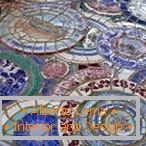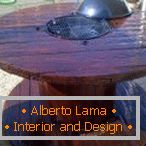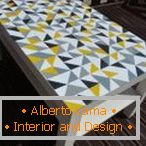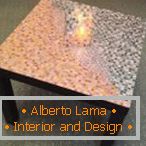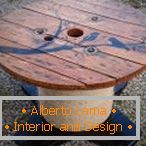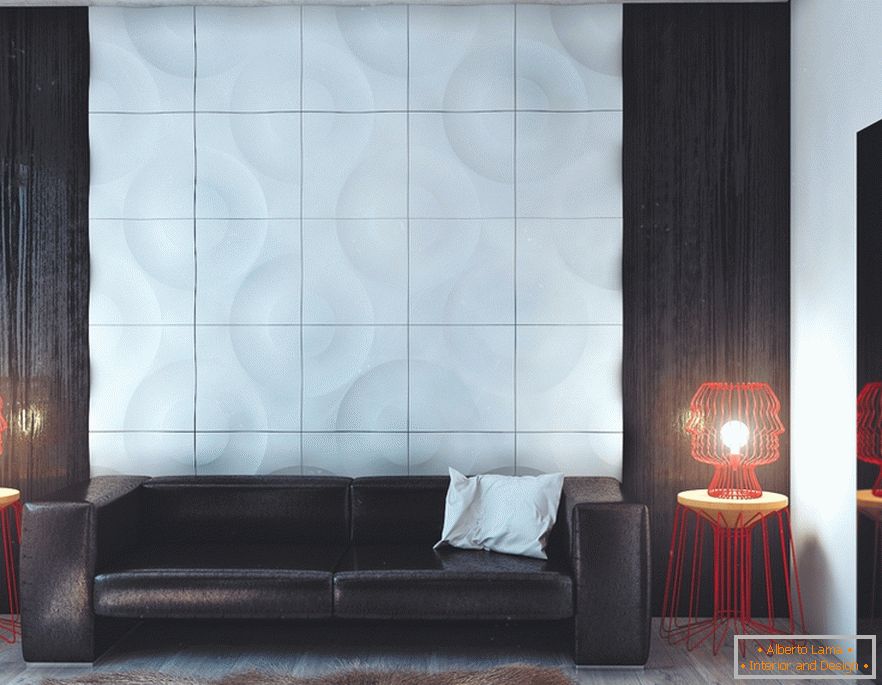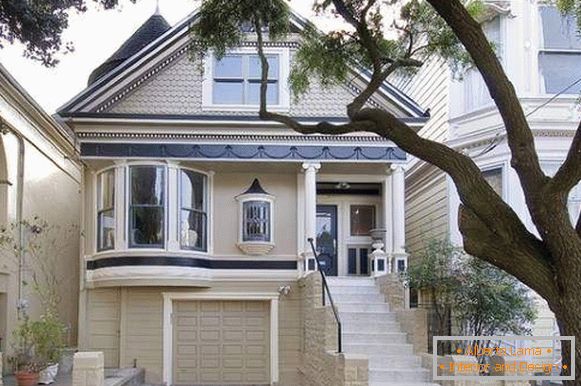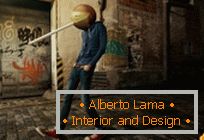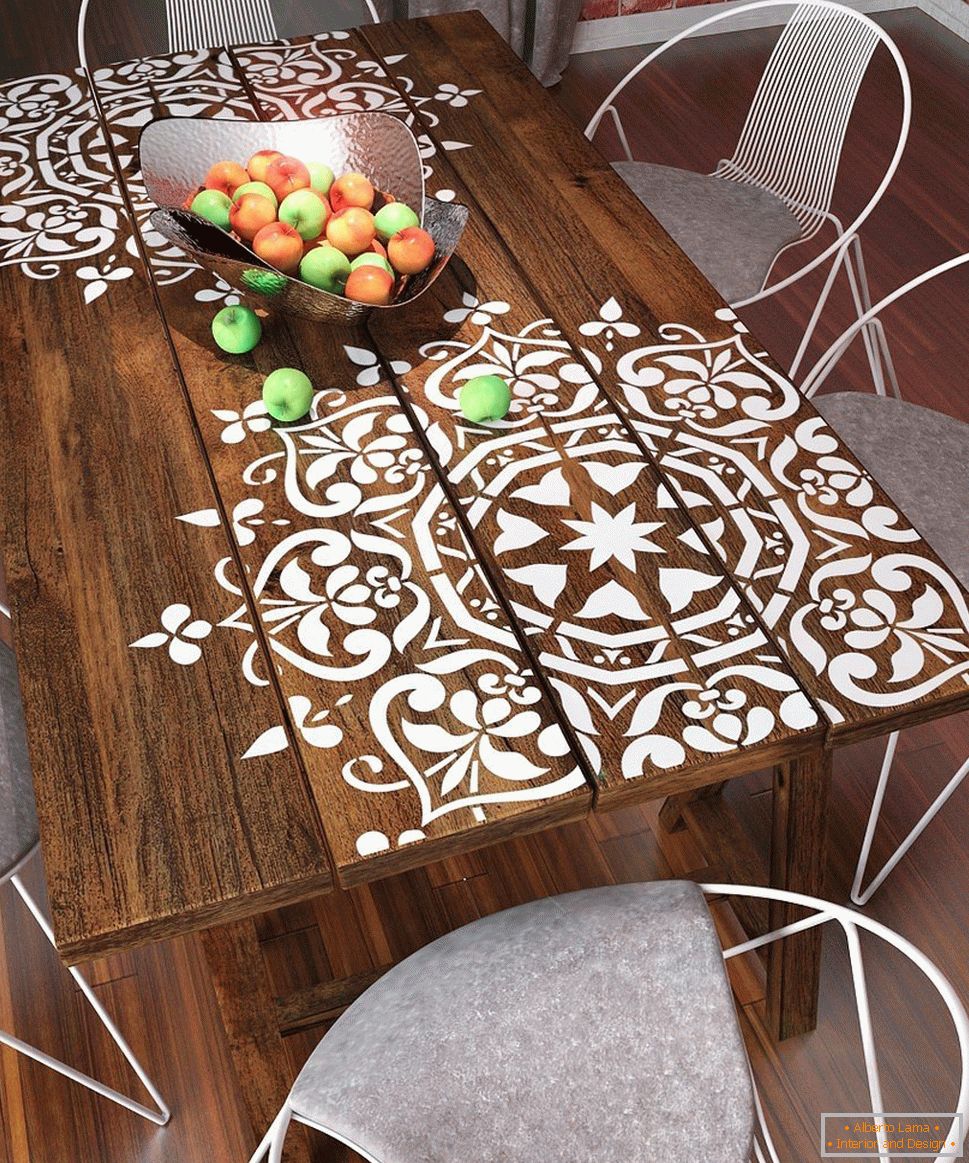
Did you come up with the fantasy of decorating your old home furniture with your own hands? Go ahead bravely - the result is worth it. You will receive a new piece of furniture, absolutely unlike the others, and spend time, realizing the craving for creativity, which is in every person. It is best to start an art experiment with a simple object that has a small flat surface, i.e. think and execute the decor of the table. And then, having tried some techniques, having improved your skills, you can proceed to decorating more complex objects.
Drawing an analogy, make up your own algorithm of actions:
- Determine which table you will decorate (kitchen or writing, street or room).
- Browse illustrated magazines or photos on interior websites - select interesting samples.
- Learn in theory the method of decor you like.
- Prepare the necessary materials and tools.
- Take on the phrase from the movie "Sorcerers" for the brothers Strugatsky "The main thing is to believe in yourself, not to see obstacles" and you will succeed.
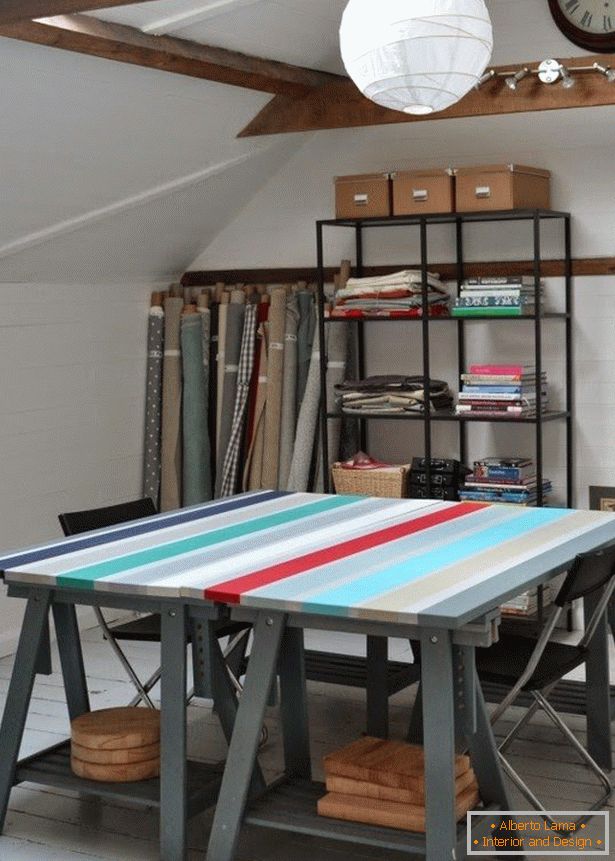
We choose the method of decoration
The options for decorating the horizontal surface are so many that paint lovers, compilers of collages, collectors of all stripes, masters will be able to gather from the pieces a single whole. The decor of the wooden table by its own hands is quite amenable to beginners, and for "advanced users" the creation of such interior objects can become an opportunity to make a special gift to a friend, a close person or relatives. In this case, it is necessary to take into account the style characteristics of the apartment environment of these people.
Read also: How to decorate a mirror with your own hands 
Attention! The method of decor should be selected based on the location of the table and the degree of its operation.
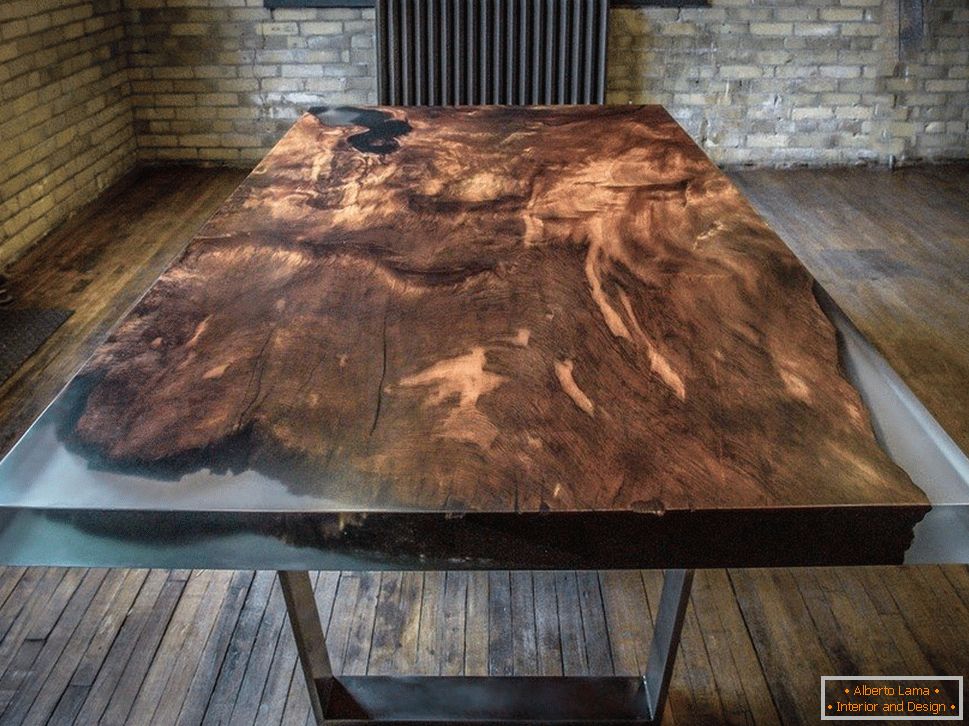
A decoupage is not suitable for a family table for family meals in the open air. In this case, a strong coating is required, resistant to precipitation and abrasion. The gaming or computer table in the nursery is also subject to heavy loads, so it should be decorated so that the heart of the mother does not hurt painfully when the child "barbarously" paints directly on the surface or clings to it clay. But an office, boudoir or a table can be decorated more "gently", tk. their use does not involve heavy loads.
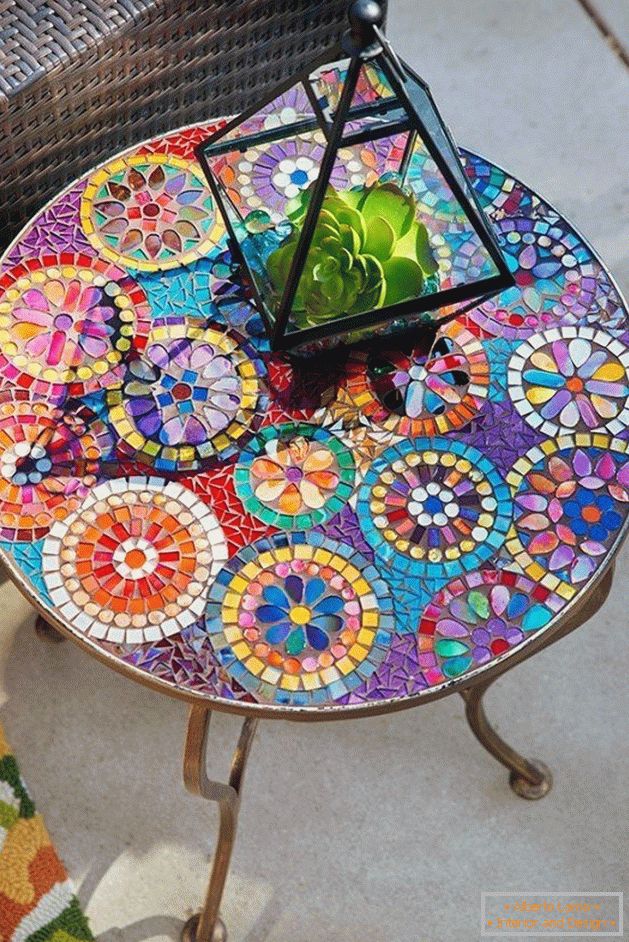
| Purpose of the table | Type of operation | Material of manufacture | Decoration type | disadvantages |
| Dacha | Year-round, exposed to changes in temperature, precipitation | Concrete | Mosaics, tiles | Requires skills in working with tile adhesive, clear time requirements |
| Painted concrete, creation of figured supporting structures (bas-relief, sculpture) | High degree of complexity of manufacturing, time frames for working with concrete | |||
| Tree | Staining, applying a pattern on a stencil, coating with stains, shade compounds | Preliminary treatment with decongestants is required (colorless), after 2-3 years a complete restoration of the paint layer will be required | ||
| Children's | Active influence in games | Tree | Painting, drawing | Change of children's interests leads to a change in the drawing |
| Plastic | Application of self-adhesive fragments (films) of suitable subjects | After some time of use, the edges of the labels get a sloppy look | ||
| Magazine | Minor | Tree | Decoupage | Requires careful handling |
| "Under the Glass" | The edges of the glass sheet must be carefully sanded to avoid cuts | |||
| 3D picture | The dust between the frame and the glass is clogged in the gap, which is difficult to clean |
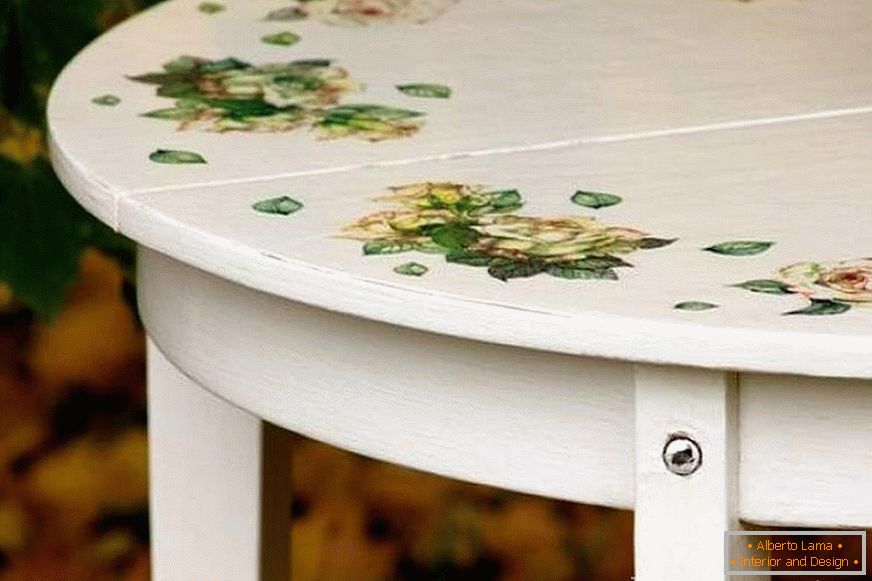
Everyone in the soul is an artist
The easiest way to give the old table a new life is the use of paint. Variations of decoration are offered a lot:
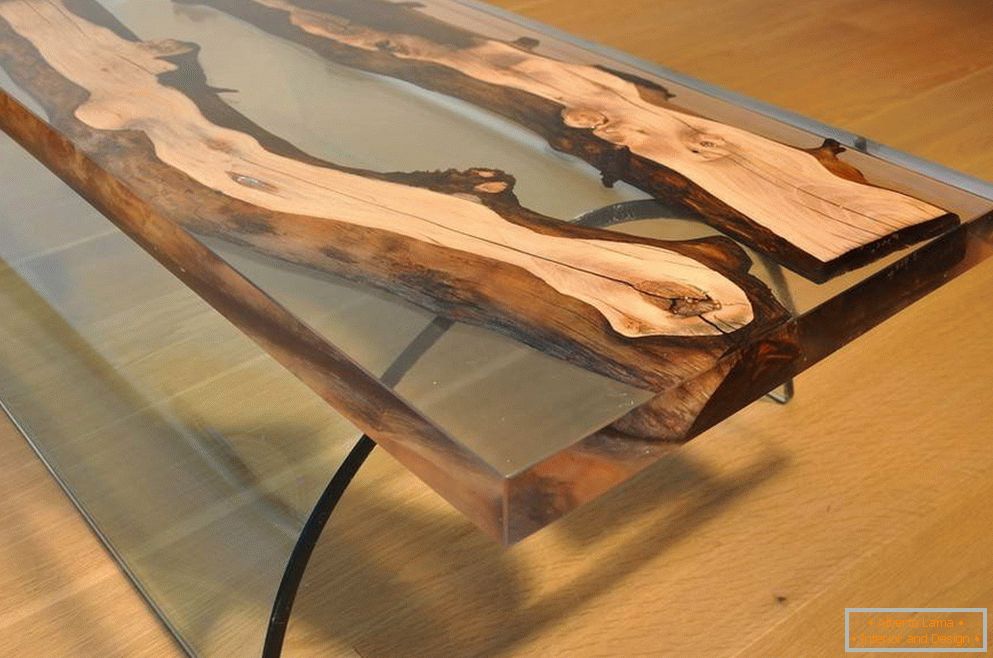
- full monophonic coloring (a bright little table will be an accent of the room, decorated in modern styles)
- geometric coloring in different colors (in this case, the table decor means a combination of bands, squares, other figures, you can create visual illusions on its surface, and paint the legs in the base color with a substitute)
- application of a contrast pattern on the stencil to a monophonic surface (using curves in the form of curbs, individual elements, central volumetric outlet, fonts)
- Art painting a la Art Nouveau, Provence, Art Nouveau, variations of Russian or Oriental styles (if you do not feel the talent of the artist in order to freely draw in the manner you like, - copy by selecting the appropriate ornamental motif)
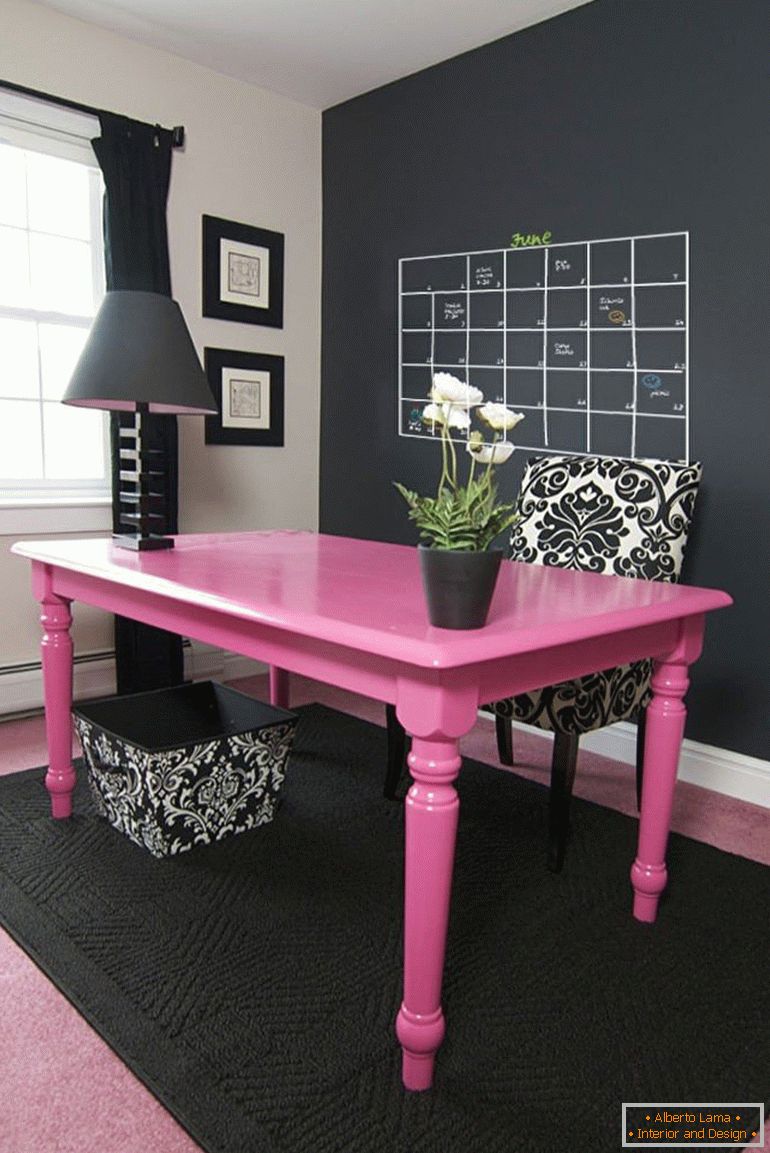
To apply the geometric pattern you will need: a simple pencil, ruler, sandpaper (coarse and fine-grained), a primer, quick-drying wood paint, paint tape, flat brushes of various widths.
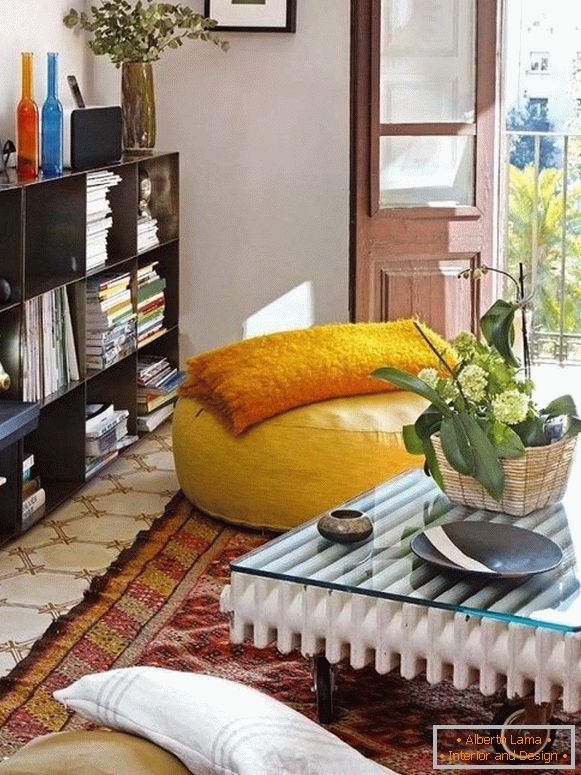
Attention! If the color spots are very voluminous, use small rollers with the finest porous sponge. A roller with a pile or large pores will leave visible traces on the surface. However, if your goal is an additional relief effect, then such a tool will allow it to be obtained.
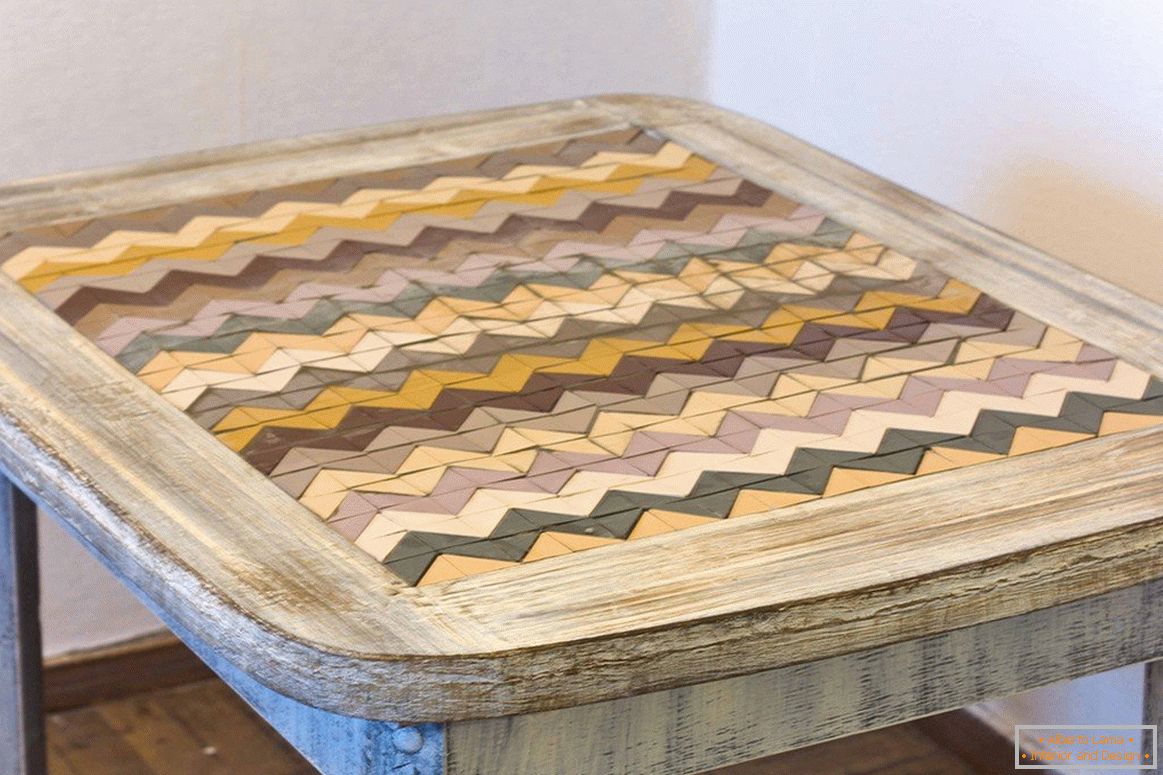
We work according to plan - we receive a unique object of an interior
Having prepared the necessary tools for giving the table a new appearance, follow the following steps in sequence:

- Create a sketch of the drawing.
- Process the entire table with a large pencil, then carefully walk through the shallow one.
- If you want to get to a natural tree from an old painted table, then special compounds that remove the colorful coating and a spatula will be required.
- Carefully dust off the prepared product (useful vacuum cleaner, well-wrung cloth).
- After completely drying, cover the entire surface with a primer.
- Turn the table over, paint the main color of the legs, the table, the underside of the countertop, let the paint dry well.
- Return the table to the traditional position, transfer the pencil sketch to it using a ruler.
- Outline the boundaries of the first color spot with a paint tape.

- Paint the resulting window (do not draw too much ink on the brush, uneven thickness of the paint layer leads to the formation of sags, which does not add aesthetic appeal to the decoration object).
- Carefully remove the paint tape, without waiting for the ink to dry, to preserve the clarity of the border.
- Continue painting the figures sequentially. Jointing elements can be filled only after the previous element has completely dried out and glued along the joint line of the paint tape.
- After your sketch is completely transferred to the surface of the table, leave the object to dry, and then (if you want to get a glossy surface), cover it with varnish.
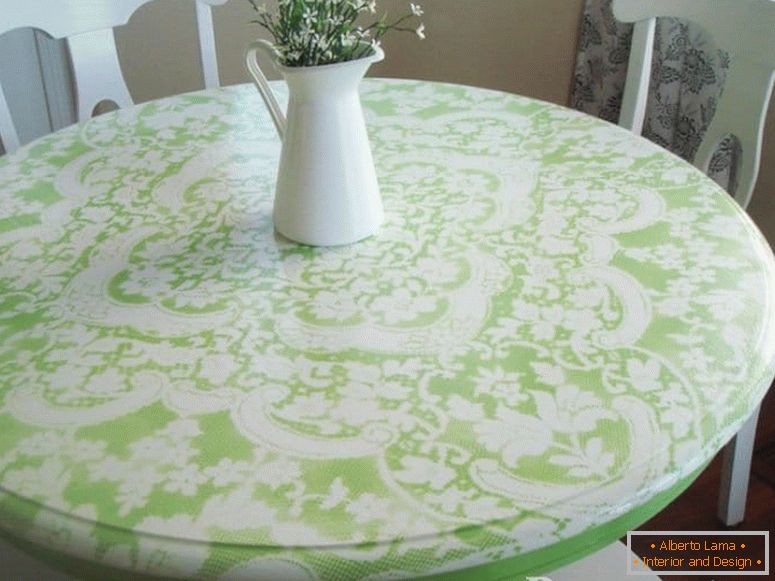
Transparent top, solid bottom
An interesting variant of decorating the table is the use of glass of a suitable size to create a "picture".
See also: 9 kinds of making interior dolls with their own hands 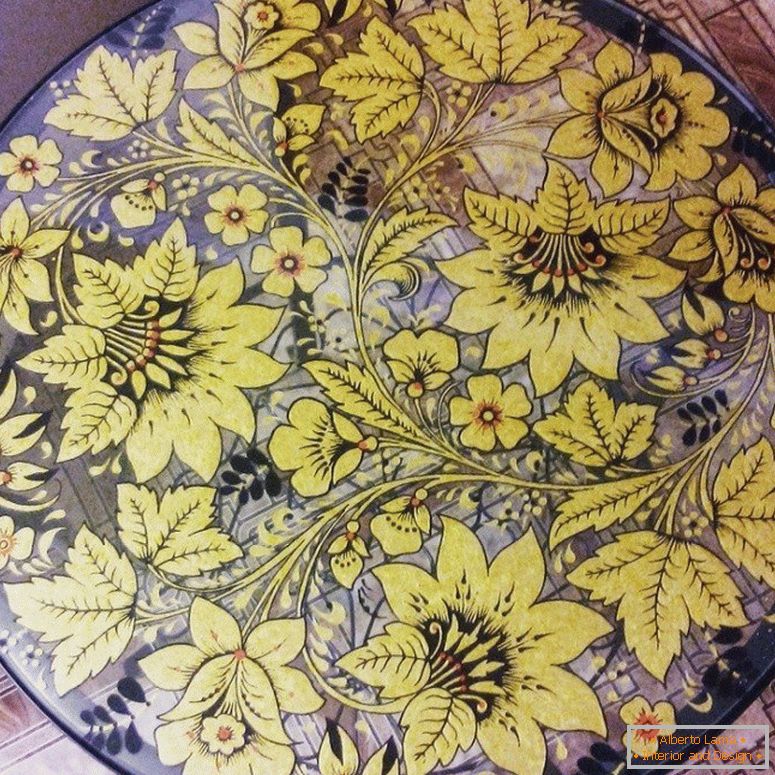
In the first case, collages from any images, old postcards, photographs, children's drawings, compositions from dried flowers, leaves, sheet music fan or the page of pre-revolutionary books are placed under the glass cut out exactly by the size of the table-top. Thick glass tightly presses the "exposure", its elements can almost not be glued together. Lifting the glass, it is easy to replace the boring visual series and place a new collection in a conspicuous place.
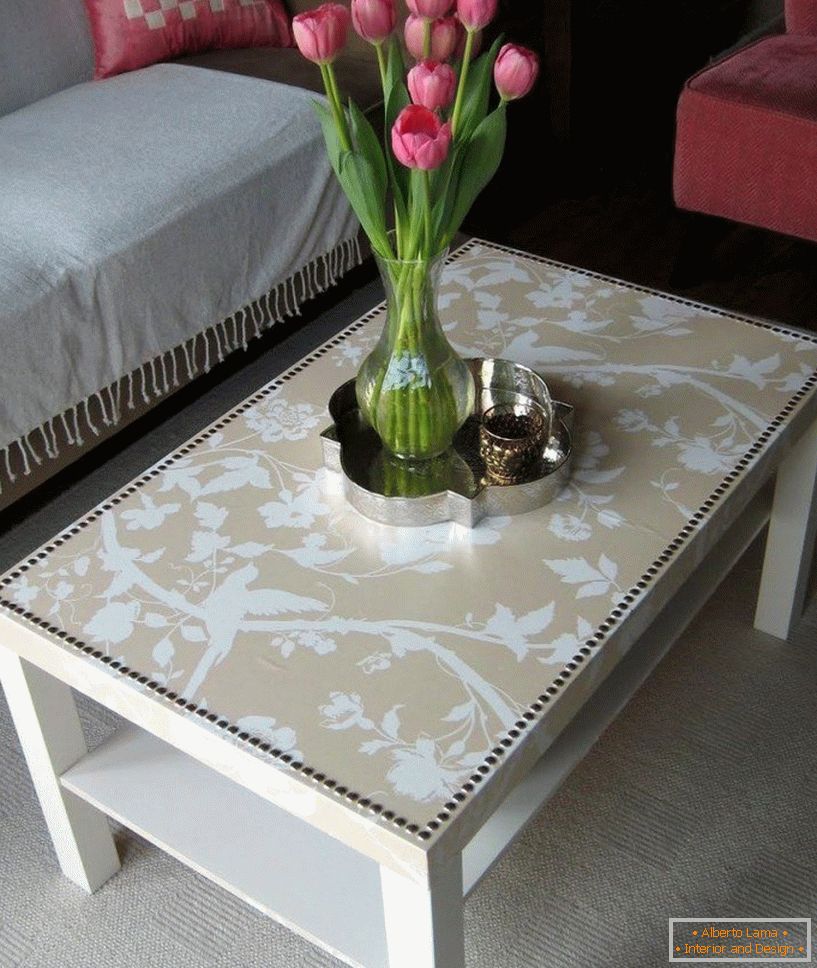
In the second case, the edges of the table are decorated with bumps of the required height (brusks). Over the rim, taking a small part of them, glass is laid, and the rest of the bar is decorated with a baguette of suitable width and design. The table and the bars are painted, the table top can be pasted with a cloth (canvas, jeans, velvet), on which collections of small items (lighters, old keys, serving items, interesting buttons, embroideries and braid, miniature paintings, rare book editions of pocket format ). The filling of space under the glass depends on the place intended for placing such an unusual object of the interior.
